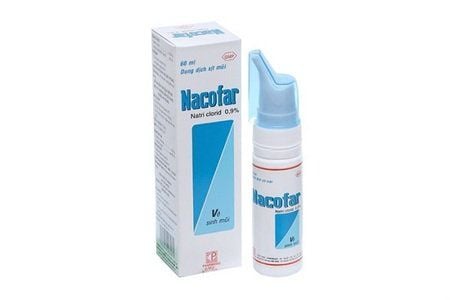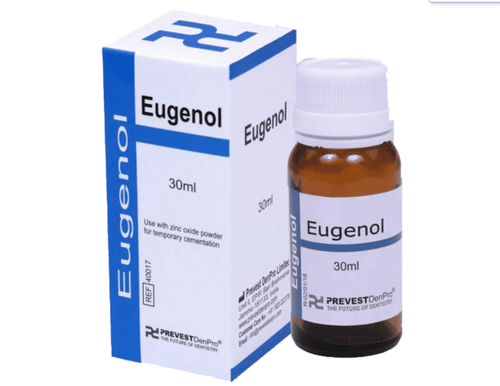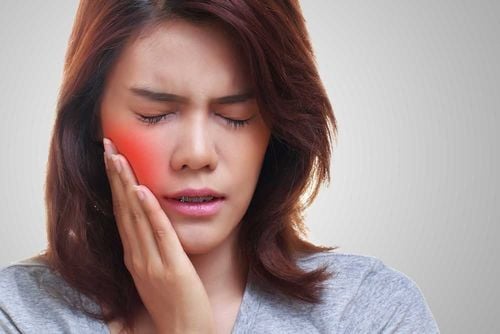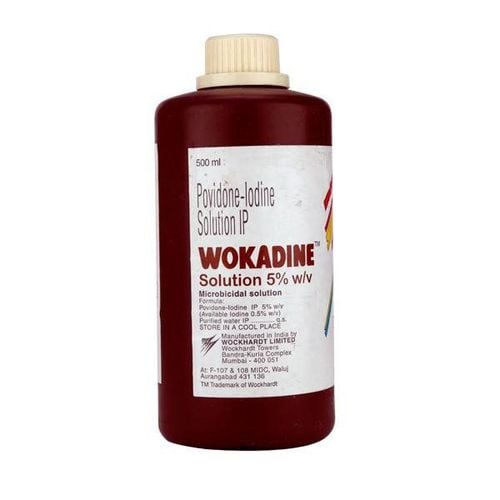This is an automatically translated article.
Gargling after brushing teeth is a fairly common habit for everyone today, be it gargling with salt water or gargling with other solutions. However, whether gargling has any effect on health or not as well as how to gargle are very necessary knowledge and should be understood in the clearest and most accurate way to ensure oral health.
1. Rinse your mouth after brushing your teeth
There are many ways to make your breath fresher and one of the ways that is said to be beneficial for teeth and gums is to develop a habit of rinsing your mouth every day. With the concept of modern medicine today, many scientists believe that mouthwash not only helps to freshen the breath, but this is also a way to reduce gingivitis, dental plaque and even cancer. teeth whitening effect.
Gargling after brushing is not a substitute for brushing and flossing after eating. However, in cases where it is difficult to brush or floss to clean teeth, rinsing will help protect the body from diseases related to tooth decay or gum disease. In particular, mouthwashes containing fluorine have the ability to prevent tooth decay.
When you include mouthwash in your home oral care routine along with brushing and flossing, it can help solve a number of dental problems. If you only use whitening mouthwash for about 2 minutes, it will not be able to help whiten teeth immediately. However, if a combination of brushing teeth thoroughly, removing plaque and using mouthwash afterwards as part of the oral cleaning process, teeth will be whiter after a period of application.
However, rinsing your mouth after brushing your teeth cannot guarantee a cure for serious dental problems. If you are experiencing frequent bleeding gums or unusually bad breath, you should visit your hospital or dental clinic for a closer examination. At this time, it is possible that the patient will be prescribed by the dentist to use some type of mouthwash with stronger properties than normal mouthwashes.

Giải đáp súc miệng thế nào để đảm bảo sức khỏe răng miệng
2. Gargle with salt water
Salt water gargling is one of the methods applied a lot at home. When the throat becomes dry or there are symptoms of a sore throat such as painful swallowing, we often tend to gargle with salt water as a way to relieve these symptoms, especially warm salt water is believed to be. It will help relieve sore throat effectively. Indeed, gargling with salt water not only helps ease the symptoms of a sore throat, but it also helps prevent it from happening again.
When gargling with salt water, the body will create a barrier with high salt content in the throat to help absorb a lot of liquid secreted from the cells in the throat area. Therefore, it will help eliminate the virus in these locations. In addition, salt is also known as a substance that has the ability to attract and retain water, so it is very good for reducing sore throat. When the body is gargling with salt water, this salt will help the throat absorb and retain water, thus reducing dehydration. However, this is only a supportive treatment, not an orthodox sore throat treatment, and salt water cannot be used to treat viral infections such as sore throat, because salt is not enough. chemically strong to resist the effects of viruses.
Besides soothing a sore throat, gargling with warm salt water also helps relieve symptoms of toothache very well. Accordingly, without salt, regular gargling with water can help prevent diseases related to the upper respiratory tract.

Súc miệng nước muối là một trong những phương pháp được áp dụng rất nhiều tại nhà
3. How to gargle?
For the safest and most beneficial mouthwash, you need to choose the right mouthwash for you as well as the best ways to gargle:
Choose a mouthwash: This is an over-the-counter solution, so Users need to carefully read the ingredient list before use and the effects of each substance in it. Some common substances in mouthwash are Fluoride, antibacterial agent, salt, salt neutralizer, whitening agent. Fluoride is a substance that reduces and prevents tooth decay. Antibacterial agent will kill bacteria that cause bad breath problems, dental plaque, gingivitis in the early stages... Advice from dental experts when choosing One type of mouthwash is to choose based on the biggest oral condition you are facing. About how to gargle, each product will have different specific instructions. However, there will be a few basic notes such as you can use mouthwash before brushing and flossing afterwards, you should hold mouthwash for about 30-60 seconds, need to be patient to see the effect from the water. washing mouth. Rinsing your mouth after brushing is an effective method that both protects your teeth from diseases and helps keep your breath clean and odor-free. However, the choice of mouthwash and how to rinse should also be carefully studied before proceeding with this method.
Follow Vinmec International General Hospital website to get more health, nutrition and beauty information to protect the health of yourself and your loved ones in your family.
Please dial HOTLINE for more information or register for an appointment HERE. Download MyVinmec app to make appointments faster and to manage your bookings easily.
References: webmd.com, hopkinsmedicine.org, healthline.com













